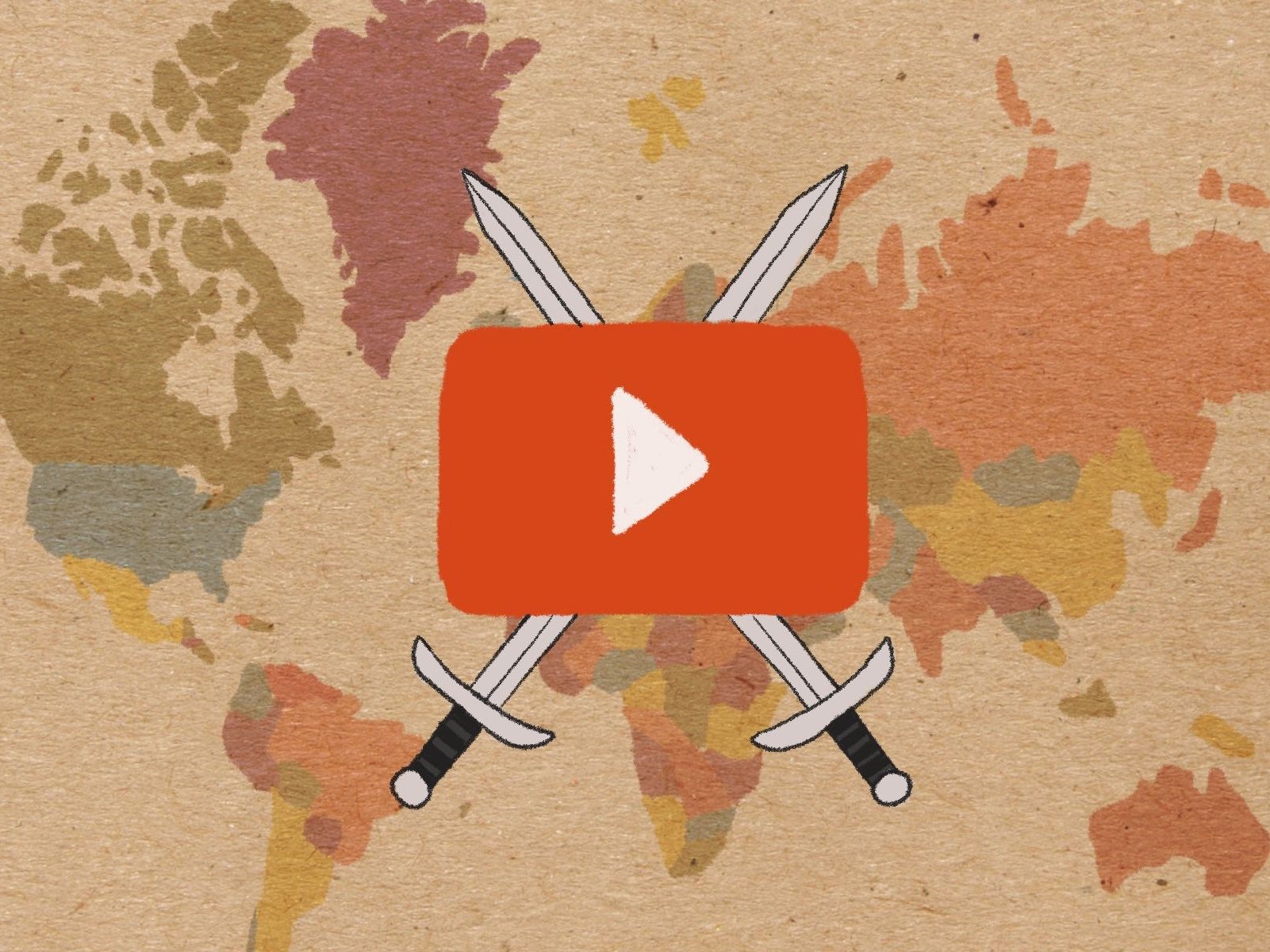“Kings and Generals” is a YouTube channel that explores the nuances of significant historical societies and events. Their videos typically research the impacts of political campaigns.
Though the channel has a number of videos dedicated to the classical world, it has no limit on period. Nor does it have a limit on which world it covers, occasionally discussing fictional topics such as the history of “Game of Thrones.” Some of the subjects are so monumental that their relative obscurity is baffling.
1. Aztecs: from Refugees to Hegemons
The history of the Aztecs in popular discourse is often limited to its end at the hands of the Spanish. “Kings and Generals” does not ignore this event, even dedicating a whole video to the arrival of Cortes. However, they also feature a video on the general history of the Aztecs.
They were among the last nomadic tribesmen to enter the Valley of Mexico, a densely populated region that surrounds Lake Texcoco. The Aztec penchant for human sacrifice horrified the established people of the Valley, but their prowess in combat led to employment as mercenaries.
After they sacrificed the daughter of the king of Culhuacan, a powerful city that employed the Aztecs, they were driven into the lake. There they saw a sign from their god Huitzilopochtli, an eagle-eating serpent, on a cactus in the lake. The shallow island on which that cactus stood was where the Aztecs made their home.
Over next century and a half, they would convert that small region of swampy land into one of the largest cities in the world, Tenochtitlan. The Aztecs became the dominant power in the region through assimilation and conquest. Education was nearly universal, although sacrifices continued within the new metropolis.
With massive amounts of tribute flowing in from defeated enemies, the Aztecs built up their city to include massive pyramids, complex canal systems and large aqueduct systems that carried water to and from the city. Tenochtitlan supported more people with its canal-based agriculture than any in Europe at the time. No other city would be able to house as many citizens until the 20th century.
2. Why were Alexander’s Body and Tomb So Important? (PART I)
The tomb of Alexander the Great is the subject of a two-part series on the channel. Alexander’s body was to be returned to Macedonia by his general, Perdiccas. However, Ptolemy I, another general of Alexander and ruler of Egypt, sought to enhance his own legitimacy by possessing the tomb.
He bribed the escort for the body and had it brought to Egypt, drawing many Macedonian soldiers and leaders to his own faction, after which Perdiccas attempted and failed to secure the corpse. To become Alexander’s spiritual successor, Ptolemy also forged a complex and fictitious family tree. Alexander was supposedly descended from the last Egyptian Pharaoh, while Ptolemy was the half-brother of Alexander. Alexander’s body was likely placed in said Pharaoh’s empty tomb in Memphis as a symbolic gesture.
The body was next moved to the capital, Alexandria, where it would be a vital component of Ptolemy’s dynasty for the next 150 years. Alexander’s body was housed in a large underground chamber alongside the other Ptolemaic rulers.
3. What happened to Alexander’s tomb? (PART II)
The second part of the series further discusses the history of Alexander’s tomb. Rome held great interest in the body once they conquered Egypt. Both Gaius and Augustus Caesar traveled there to pay their respects to it. The Romans later removed the Ptolemaic tombs out of contempt for their supposed connection to Alexander, and many of the successive Roman emperors harbored obsessions with the Greeks.
The body survived many sackings by neighboring factions, but no known account of it survives after 390 A.D. With the rise of Christianity, zealots throughout the Mediterranean destroyed any symbols of paganism they could. While the body likely perished, theories that propose its survival abound.
4. The Greco-Chinese War Over the Heavenly Horses
Rome and Han China were the largest empires of their time, each trying and failing to send envoys to the other, with their contact remaining limited to the Silk Road. It would stand to reason, then, that the same could be said for other Mediterranean cultures. However, in 104 B.C., Han China would contend with Greeks in Central Asia, over the latter’s horses.
Alexander the Great is best known for his conquest of Persia and subsequent death as he attempted to seize India. Despite his absence and the fracturing of his empire, Greek culture carried on as far west as central Asia for centuries.
China needed allies in its conflict with nomadic tribesmen, so it sent delegations west. The city-states there had no wish to ally themselves with China, though the Chinese did happen across Alexandria Eschate, the eastern-most city founded by Alexander the Great.
The horses bred by the Greeks caught the eye of the Han delegation, as they were seen to embody the ideal qualities of a war horse. For unknown reasons, the Han delegation that had been sent to buy Greek horses were killed by the Greeks. The Emperor raised a force of 20,000 to take the horses and the city, but the army dwindled to a fraction of its size upon reaching the city because the Han struggled to maintain supplies over the vast distance.
They were forced to trek back to China, but the Emperor allocated 60,000 more troops, reasoning that at least the previous amount would survive the trip. They returned with 30,000 soldiers and laid siege to Alexandria Eschate. After initial resistance, the Greek nobility killed their king and surrendered to the Chinese.
They and the previously uncooperative city-states between Alexandria Eschate and China would fall under Han control. Greek culture would fade with assimilation, but it was not the end of Mediterranean influence. The conquest led to the Silk Road, as it facilitated trade between Asia and Europe.
















